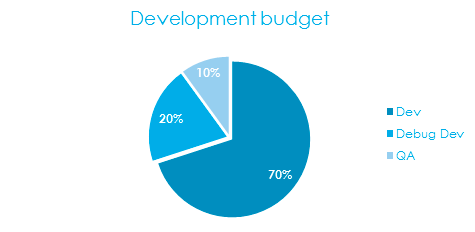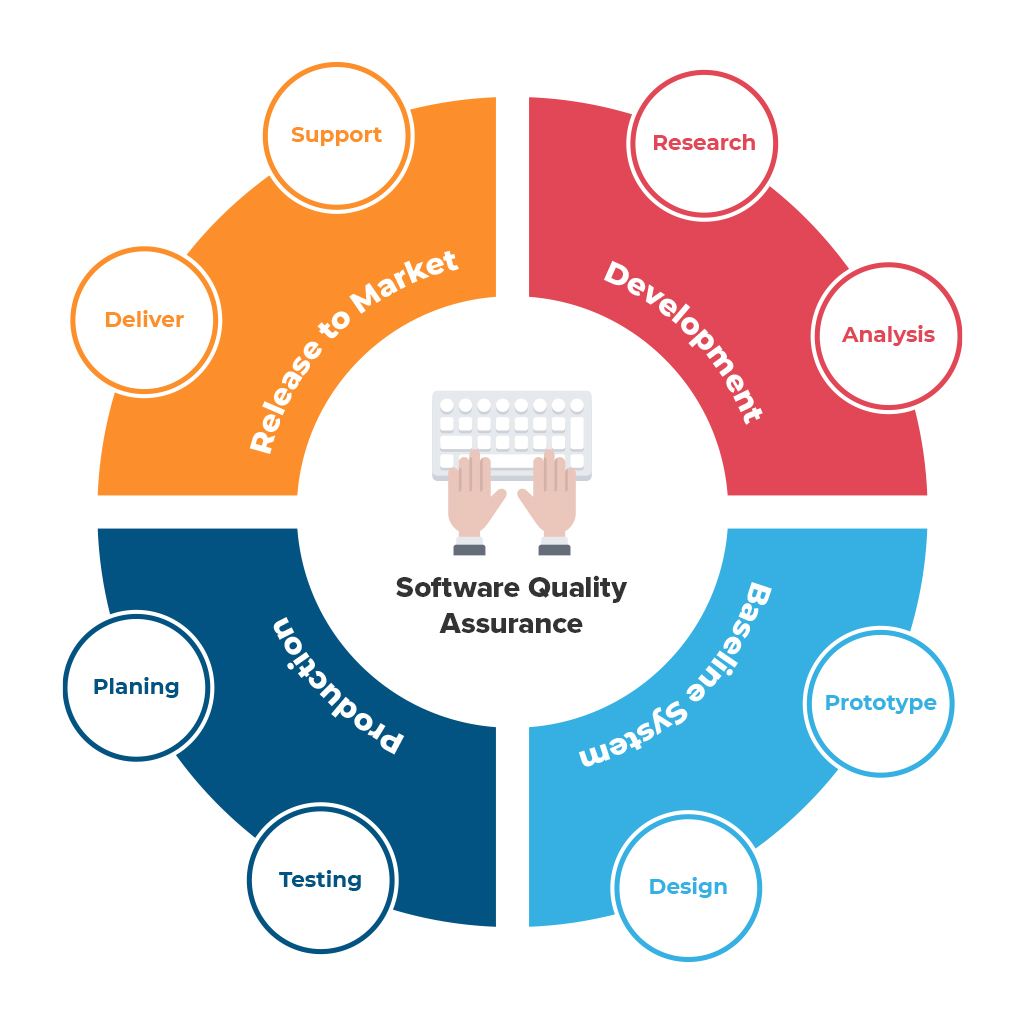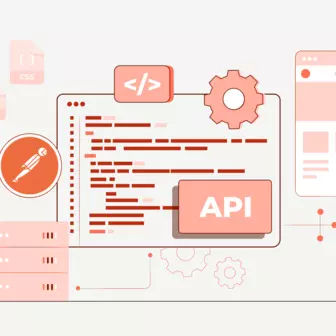The Great Blackout of 2003 that occurred in Northeast US is considered to be the worst in history. The failure in the power system occurred due to the error in millions of lines of code and the total bugs cost incurred $10 billion.
Incidents like these have marked the importance of quality assurance (QA) more prominent than ever. In this blog, we will demystify the roles and responsibilities of QA personnel.
“As a QA, we are responsible for understanding the product documentation in order to identify the scope of quality. The QA team at OpenSense Labs focuses on continuously improving the product quality until it meets the client requirements” says, Gaurav Mehrotra, Senior QA engineer.

Role of a Quality Assurance personnel
Are you building the correct product in a meticulous manner?
When a team works with a quality-focused approach for creating error-free deliverables, it's called a Quality Assurance team.
The main objective of a QA personnel is to make sure the value of the project isn’t sacrificed while maintaining the timelines or objectives. Their toolbox includes various functionalities that focus on specific nuances of quality checks, sanitation of the applications, database, and workflows. A smooth run through by the QA assures outputs that are bug-free and helps in achieving positive first impressions. As a QA, one has a broad understanding of all roles that play a part in the project. They provide feedback for improvements and reports if the development is moving along the prerequisites of the client or not.
Developers Vs Testers
Within many organizations, a prevalent culture is noticed where the developers do the testing themselves. However, this idea is always combatted by the fact that there’s nothing like ‘’flawless codes’’ and if developers had the liberty of time at hand, they would have written them at the first place itself. Thus, errors are a part and parcel of the development. Even if a developer puts in the best of efforts, there will be bugs to be resolved at the end.
In the era of DevOps, the environments have become more agile and crunch in terms of roles and responsibilities. They do not have the bandwidth to focus on the testing part of the process. Moving forward, the gap will widen with the transformation towards Integrated QAs addressing the world of DevTestOps.
For a project to be a success, a dedicated resource for the quality assurance of the development is a must.
The 10% rule
According to many theories, the total budget value from the engineering expenses assigned to for the quality assurance of a project is 10%. The remaining 70% is the core development, implementation of technical know-how and the remaining 20% is the part where the bugs are fixed, issues are identified for further testing.

Importance of Quality Assurance in the Testing
As a QA helps the team to identify problems in the product as early as possible, here are a few other factors that make them important:
- While maintaining a standard of requirements and procedures, the planned set of actions taken by the QA guarantees the success of the product.
- The support in documentation, reporting paperwork and associated data is what the QA team provisions.
- They make sure that the procedures are being followed throughout the development cycle.
- Activities like process monitoring, testing, audits, and product evaluation are undertaken in order to enhance productivity.
- Presence of a QA provides for a transparent viewpoint of management and collaboration for QA & DevOps teams.
Bursting Myths About Quality Assurance
Sometimes, the role of a QA gets blurred due to close proximity with the developers. Thus, this gives rise to myths like these:
Testing and QA are Same
It’s the most common misconception in the industry. Ideally, the QA should be involved from the beginning of the development, which is discussed in the next point.
The thin line of difference is that the QA processes and “tests for quality” from the beginning to the end of the software development, whereas the tester checks for the smooth functioning of the product in totality and in parts as well.
QA’s focus is to ask questions about the design and review the specifications during the development itself. In fact, the architecture supporting the testing is to be identified for troubleshooting issues. While monitoring systems that help build the product gives the QA the in charge of security reviewing too.
This involves the management of internal bugs, help requests, test procedures, and security threats. Today, the QA role brings forward the importance of automation by defining the procedures that match the quality levels.
QA is Involved at the End
Even before we start with a given project, we have a deadline to meet for each stage of development. In order to reach the finish line before it expires, the quality checks aren’t performed at the beginning as they delay the development with multiple QA cycles. The developers tend to avoid the back and forth of designs with the QA and go on with the procedures. However, this backlashes at later stages when the QA cycles get squeezed under the limitations of time and major errors go unidentified until the final phase. Sometimes, the malfunctioning could result in serious errors that cannot be undone later.
Therefore, the QA should be involved from the very beginning of the project calls. This will give them a clear understanding of the client’s expectations and requirements too. The delay in involving a QA can inversely lead to more delays as a rushed affair never yields the best of results.
With the new QA processes being adopted, the focus is shifting to end-to-end tests where the build verification tests and the performance tests are becoming imperative for shorter sprint cycles too.

Towards Building Better Products
In the near future, the concept of DevTestOps is blooming with independent QA teams. The importance of agility in the nature of testing the processes of digital projects holds value creation abilities for organizations. Along with making sure that the product meets the clients' requirements, it is equally important that the QA is involved in ensuring them. This requires companies to utilize them for optimum results instead of ignoring the QA cycles.
We at OpenSense Labs pioneer in providing the best of services with 100% quality checks that are initiated by our teams all along with the project. Drop by at [email protected].
And do not forget to share your views on our social platforms: Twitter, LinkedIn, and Facebook.
Subscribe
Related Blogs
Trek n Tech Annual Retreat 2025: A 7-Day Workcation of OSL

OSL family came together for the Trek n Tech Annual Retreat 2025, a 7-day workcation set amidst the serene beauty of…
Exploring Drupal's Single Directory Components: A Game-Changer for Developers

Web development thrives on efficiency and organisation, and Drupal, our favourite CMS, is here to amp that up with its…
7 Quick Steps to Create API Documentation Using Postman

If you work with API , you are likely already familiar with Postman, the beloved REST Client trusted by countless…




